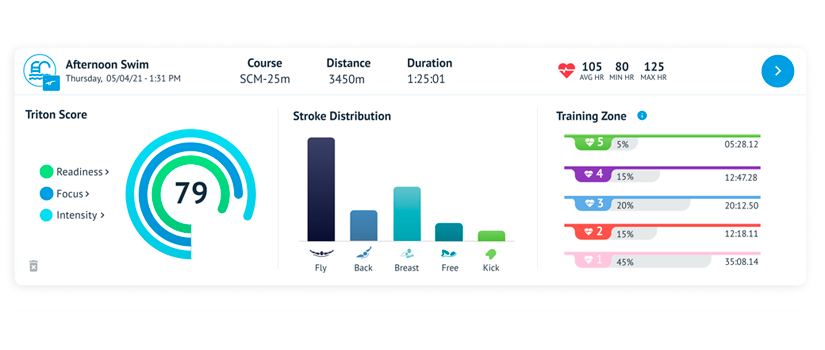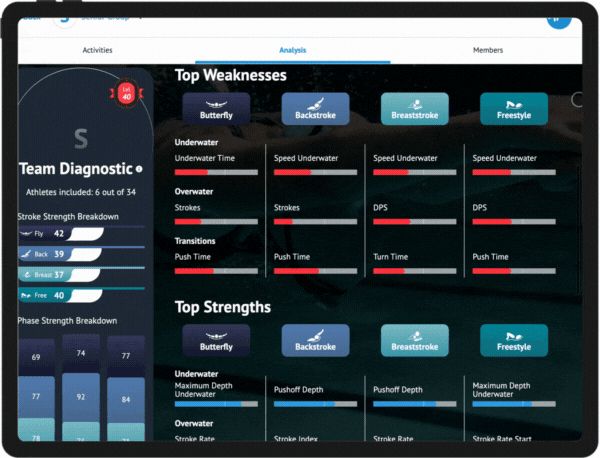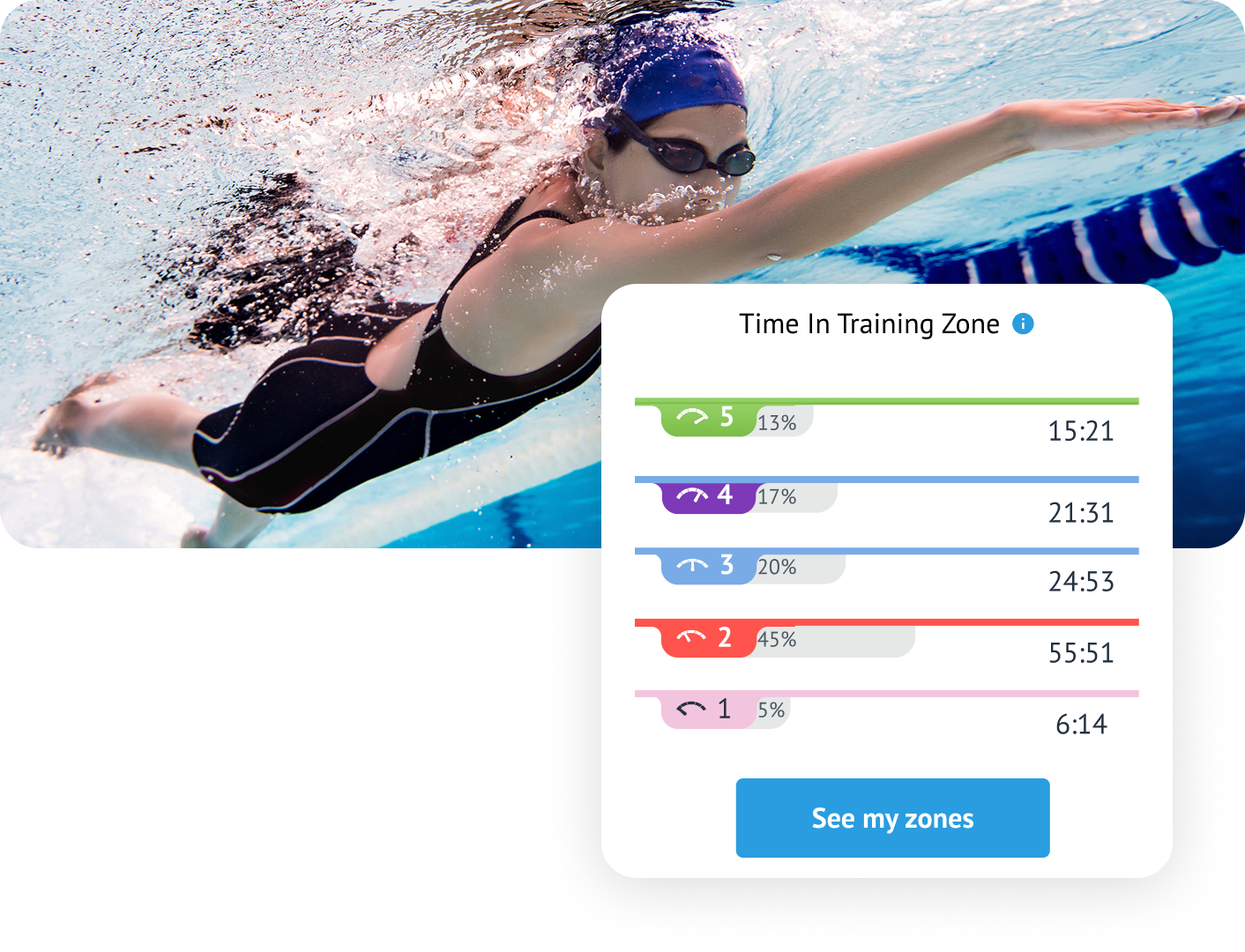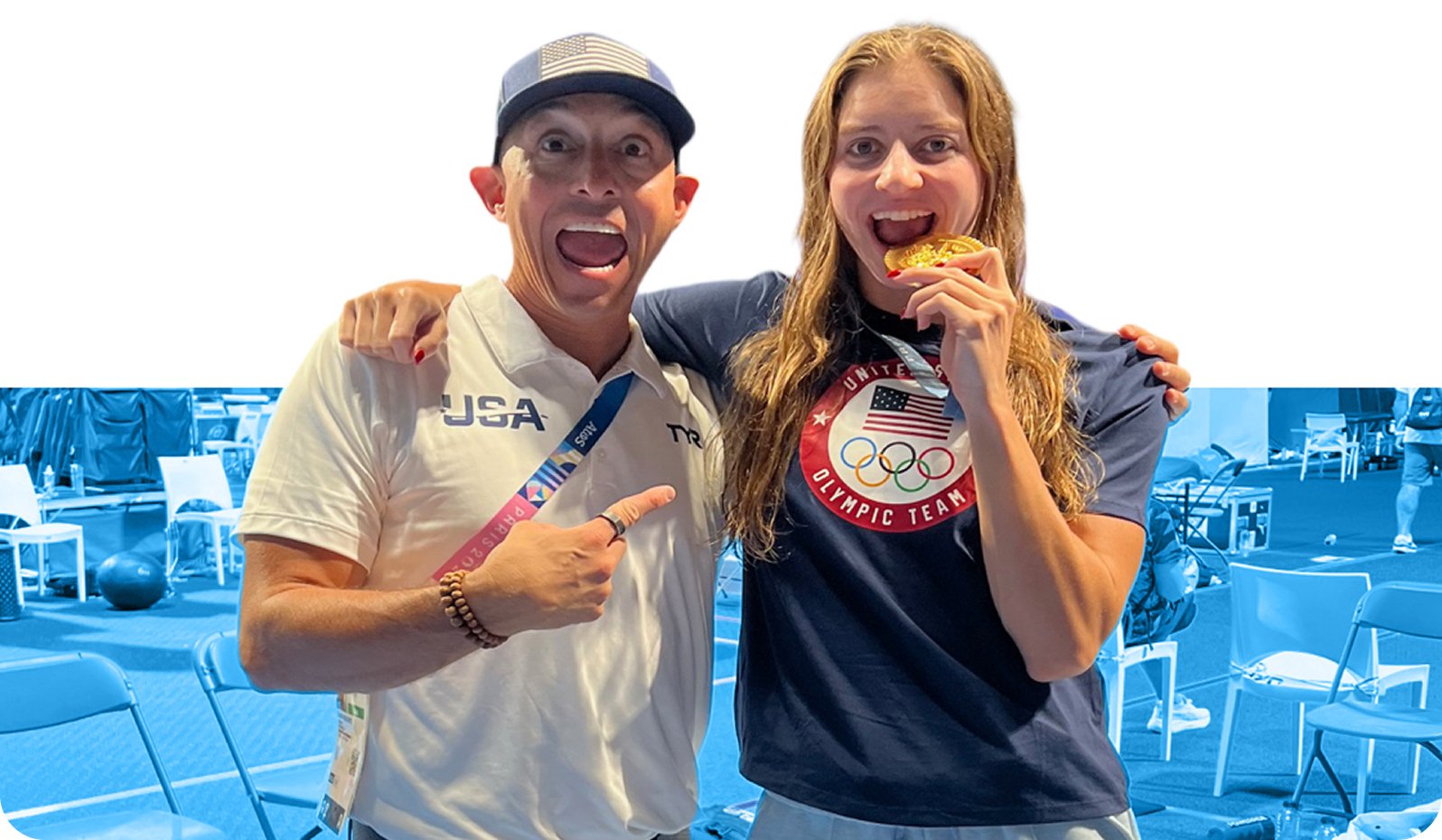The beauty of our sport is that swimming is not just an individual sport; it also has a strong team aspect to it. You not only compete individually but also contribute to the success of your team by accumulating points based on your performance. It takes a strong team dynamic to achieve success at the team level.
This is why building a winning swim team goes beyond individual talent; it involves setting clear goals, fostering a positive team culture, developing leadership skills, and engaging in team-building activities. In this article, we will explore various strategies to strengthen team bonding and unity, along with the role of data in achieving success as a team.
Building a Winning Swim Team: Strategies for Team Bonding and Unity
- Strong Coaching and Training: Invest in experienced coaches who understand the intricacies of swimming techniques and can tailor training programs to the individual needs of each swimmer. Implement a structured training regimen that includes a balance of endurance, speed, and technique-focused drills. Regularly assess and adjust training plans to ensure continuous improvement.
In addition to investing in experienced coaches who understand the intricacies of swimming techniques, it is crucial to hire coaches with a growth mindset who are willing to embrace technology and utilize it to help take the team forward. Technology has become an integral part of sports training, and swimming is no exception. Coaches who are open to incorporating technology into their coaching methods can provide swimmers with valuable insights and analysis that can greatly enhance their performance. - Foster Team Spirit and Camaraderie: Team-building activities are essential to create a sense of camaraderie and unity within a swim team. These activities help in breaking down barriers, building trust, and enhancing communication among team members. One popular team-building activity is the "Trust Fall," where swimmers take turns falling backward, relying on their teammates to catch them. This activity not only builds trust but also promotes teamwork and support.
Another effective team-building activity is the "Human Knot." In this activity, swimmers stand in a circle, reach across and grab hands with two different people. The challenge is to untangle the knot without letting go of anyone's hand. This activity encourages problem-solving, cooperation, and communication skills, which are crucial for a successful swim team.
- Develop Strong Leadership: Leadership plays a vital role in the success of any swim team. Coaches should encourage swimmers to take on leadership roles and responsibilities. This can be achieved by appointing team captains or rotating leadership roles among team members. Leadership positions allow swimmers to develop their decision-making skills, motivate their teammates, and foster a positive team culture. By taking on these responsibilities, swimmers learn how to effectively communicate with their teammates, resolve conflicts, and provide support and encouragement.
Leadership positions also help in fostering a positive team culture. When swimmers take on leadership roles, they become invested in the success of the team as a whole. They learn the importance of teamwork and collaboration, and they are motivated to create an environment where everyone feels valued and supported. Additionally, they learn how to set goals, manage their time effectively, and handle pressure. These skills not only benefit them in their swimming journey but also in other areas of their lives. - Set Clear Goals and Expectations: Establish clear goals and expectations for the team, both individually and collectively. Communicate these goals to the swimmers and regularly assess their progress. Encourage goal-setting and provide feedback and guidance to help swimmers achieve their personal bests. Setting clear goals and expectations for the team helps to align everyone's efforts and provides a sense of direction. It is important for coaches to communicate these goals to the swimmers and regularly assess their progress. By regularly discussing and revisiting goals, coaches can keep swimmers focused and motivated throughout the season.
In addition to individual goals, it is also important to monitor and improve the team's performance as a whole. TritonWear, for example, provides coaches and swimmers with the ability to monitor individual swimmers' performance through their activity cards. This allows for targeted feedback and personalized training plans.
Furthermore, TritonWear's Team Diagnostic enables coaches to assess the team's performance collectively, identifying areas where improvement is needed, such as underwaters, turns, or stroke technique. By using this data-driven approach, coaches can tailor training programs to address specific weaknesses and enhance overall team performance.
- Focus on Mental Skills: Organize workshops or seminars to develop mental skills such as focus, resilience, and goal-setting, which are crucial for success in swimming. By investing in these activities, coaches can create a team environment that is supportive, cohesive and focused on achieving collective goals. Workshops on mental skills can help swimmers enhance their ability to maintain focus and concentration during training and competitions. Techniques such as visualization, mindfulness, and positive self-talk can be taught to help swimmers stay present and perform at their best.
Resilience is another important mental skill that can be developed through workshops. Swimmers will face challenges and setbacks throughout their swimming journey, and learning how to bounce back from these obstacles is essential. Workshops can provide strategies for building resilience, such as reframing setbacks as learning opportunities and developing coping mechanisms for managing stress and pressure.
In conclusion, building a winning swim team requires more than just individual talent. It involves fostering team bonding and unity through team-building activities. By investing in experienced coaches, promoting teamwork, monitoring performance, developing strong leadership, setting clear goals, and focusing on mental skills, coaches can nurture both physical and mental growth, leading to a successful and unified team.




.png)
